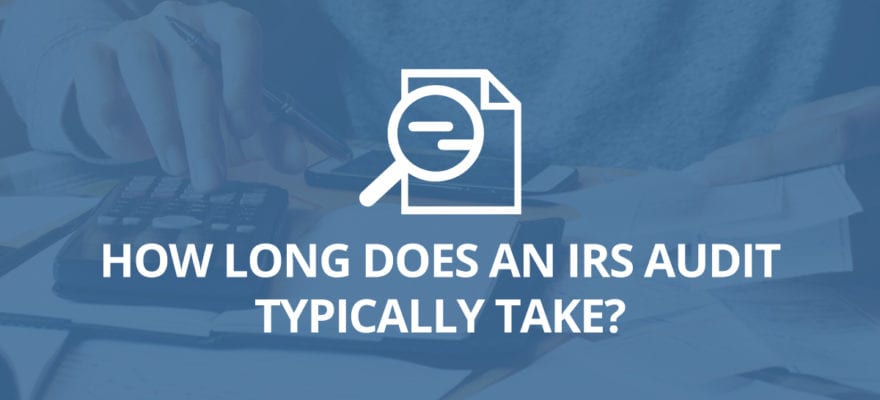The IRS has three years from the due date of a return or when you actually file the return to audit you. Most audits are completed in under a year, but they can sometimes take longer.
Bear in mind that three years is the limit under normal circumstances. If you excluded more than 25% of your actual income from the return, the statute of limitations is extended to six years. Should the IRS have reason to believe that you committed tax fraud, the statute of limitations does not apply. If you file a tax return but forget to include certain forms regarding international assets, the IRS would also have an unlimited time to audit you. I’ve personally seen the IRS go back as far as 10 years for an audit!
There are four factors that can affect how long it takes the IRS to complete its audit. They are:
- The type of audit involved
- Whether adjustments are necessary
- Whether penalties will be added
What Type Of Audit Are You Facing?
There are three types of audits used by the IRS: mail, office, and field.
Mail Audits
The IRS does over 70% of its audits by mail. You will receive a letter asking you to explain and verify something on your return, such as a deduction or credit you claimed. Depending on what the issue is, you will have to provide a written explanation and any documents that prove your claim, such as receipts.
Mail audits tend to progress quickly. They are generally completed within three to six months, depending on how quickly you respond to the audit letter, whether the information you submit is sufficient, and whether you agree or disagree with any proposed adjustments to your return.
Office Audits
In an office audit, which is usually requested if the IRS wants to substantiate deductions, you or your representative (e.g., attorney, accountant, or other enrolled agent) will meet with an IRS representative at a local government office. The letter you receive will list the information that you need to gather and present at the audit.
Although more in-depth than mail audits, office audits tend to move quickly. Most interviews are done within a day, and unless you fail to supply all requested information or the auditor uncovers something that warrants further investigation, they are generally over within three or four months.
Field Audits
The IRS only carries out field audits for complicated tax situations, usually involving businesses. An agent will come to your home, accountant’s office, or place of business to interview you and examine your financial records to ensure that their contents verify the information on your return. If you run a business, they may also tour the facility and interview your employees.
Field audits can potentially last for up to a year and even more. Working with an experienced tax attorney is strongly advised, due to the complexity of the matters being investigated and the stakes being higher in terms of potential liability.
Are Adjustments Made?
If the IRS decides that a lot of things need to be changed on your return, they will make adjustments. Once the auditor identifies errors, they take more time to examine your financial records and may even open up other years for investigation. As a result, you will spend more time under audit.
Are Penalties Applied?
If a lot of adjustments have to be made on your return, the IRS may want to build a case for adding penalties, which can prolong the audit. A tax law attorney can help you appeal any adjustments or penalties that appear to be unjustified.
Speak with a New Jersey Tax Attorney
No one wants to come to the attention of the IRS. Even if you’re facing a straightforward mail audit of your personal tax return, you may worry about accidental errors exposing you to months or even years of scrutiny.
Working with an experienced tax law firm like Paladini Law can give you the peace of mind you need. Attorney Brad Paladini can represent and advocate for you during an IRS audit and help you manage any assigned tax liability via an affordable payment plan or Offer in Compromise. To schedule a confidential consultation, please call 201-381-4472 or complete our online form.



